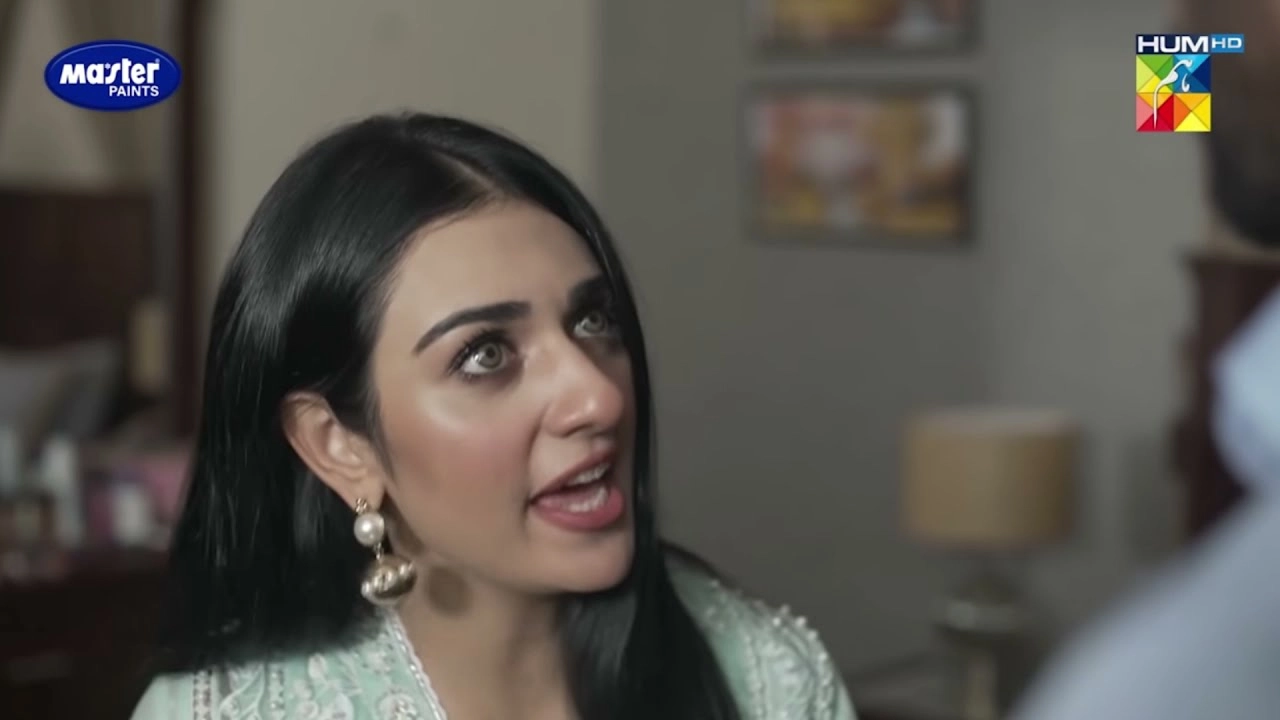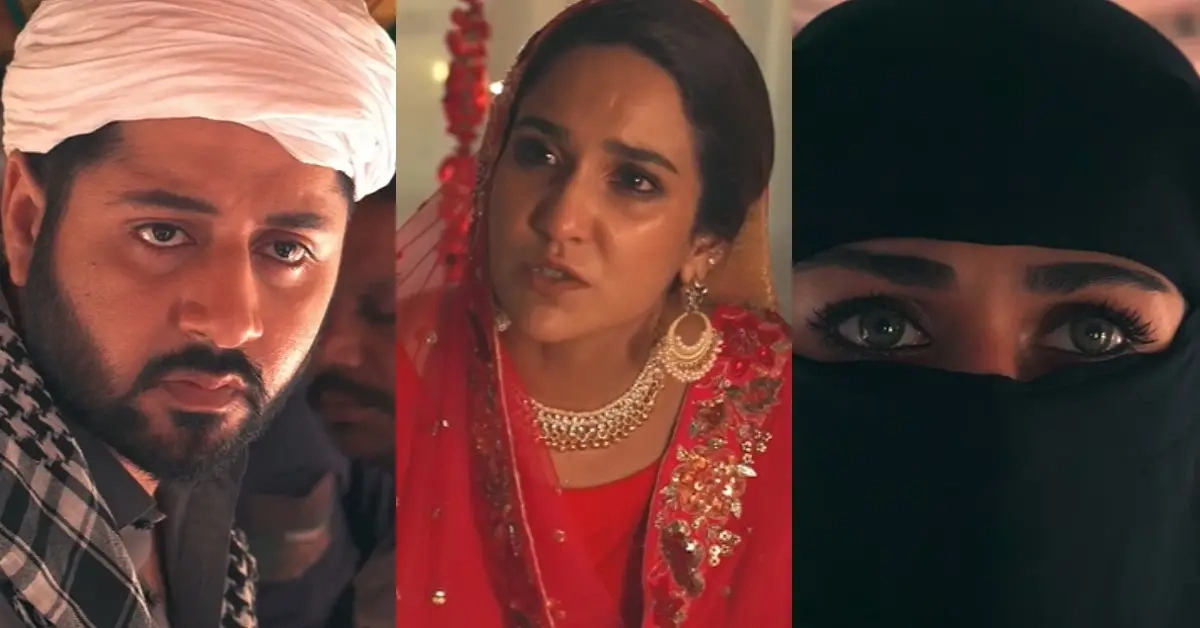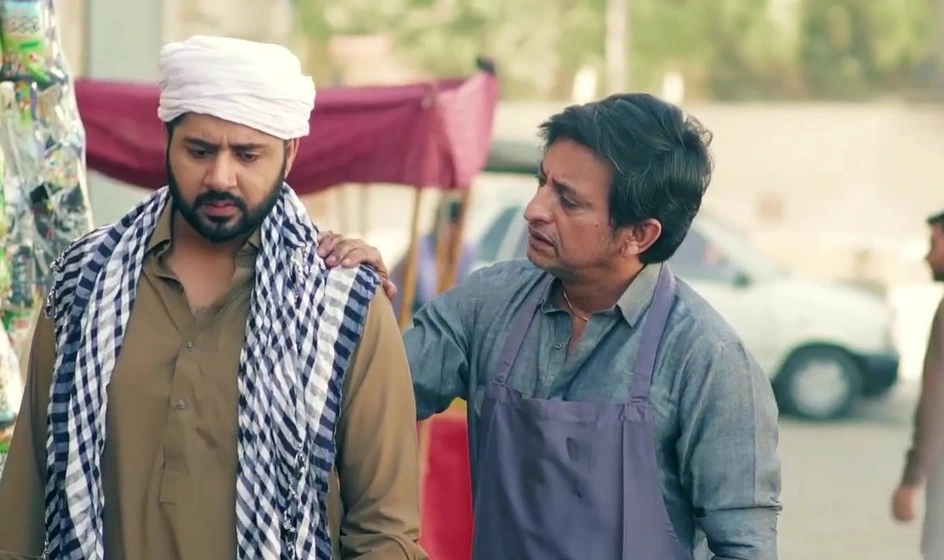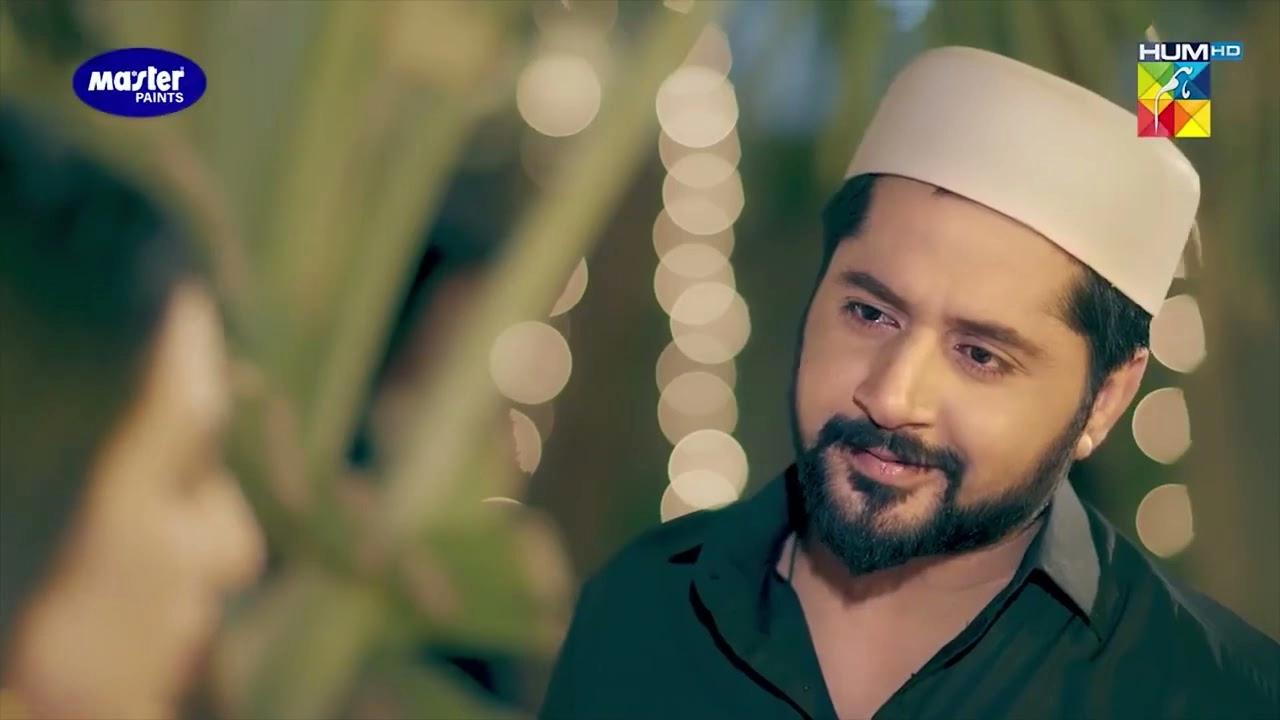Raqs-e-Bismil Drama Review – Pakistani dramas have a unique ability to blend tradition, emotions, and moral lessons into captivating storytelling, and Raqs-e-Bismil Drama Review highlights one such masterpiece. This drama, aired on HUM TV, instantly gained widespread popularity due to its intriguing storyline and powerful performances.

The drama explores the complexities of love, the struggle between desires and beliefs, and the price of loyalty. From the very first episode, it captured the attention of viewers by portraying intense emotions with an engaging pace. The depth of its dialogues and the way the characters evolve throughout the journey make it stand out among other dramas. In this Raqs-e-Bismil Drama Review, we will explore all aspects of the serial including the background, plot, characters, cinematography, themes, and audience reception. This review aims to provide a comprehensive look into why this drama left a lasting impression on audiences in Pakistan and beyond.
Background Information
When talking about Raqs-e-Bismil Drama Review, it is essential to understand the background of the show. Written by Hashim Nadeem, who is known for his poetic style and spiritual undertones, the drama brings together a blend of romance and societal commentary. It was directed by Wajahat Rauf and produced under the banner of Shazia Wajahat and Momina Duraid Productions. This combination of talented individuals ensured that the drama would not only be visually appealing but also carry deep emotional impact.
The drama was aired in late 2020 on HUM TV and became one of the most-watched serials of 2021. What made it unique was its approach to storytelling. While most dramas of the time focused heavily on family politics or mainstream romance, Raqs-e-Bismil delivered something spiritual yet relatable. It tackled sensitive issues such as societal hypocrisy, gender expectations, and the cost of following rigid traditions.
Another highlight is the casting of Imran Ashraf and Sarah Khan in the lead roles. Both actors brought depth and sincerity to their characters, making their struggles and emotions believable. From the OST to the direction, every element worked together to create an impactful experience for viewers, which this Raqs-e-Bismil Drama Review aims to cover in detail.
Plot Summary
The heart of any drama review lies in the story, and in this Raqs-e-Bismil Drama Review, the plot deserves special attention. The story revolves around Moosa, played by Imran Ashraf, who belongs to a deeply conservative family. Moosa is a man of strong faith and rigid values, raised in an environment where traditions dominate every aspect of life. His world is shaken when he encounters Zohra, played by Sarah Khan, a modern and independent woman.
Moosa initially rejects everything that Zohra represents, but destiny weaves their paths together in unexpected ways. His struggle between love and faith becomes the foundation of the story. Zohra, on the other hand, symbolizes freedom, independence, and the desire to live life on her own terms. Their relationship becomes a metaphor for the clash between tradition and modernity in Pakistani society.
As the story unfolds, audiences are taken through a rollercoaster of emotions—betrayals, heartbreaks, sacrifices, and moral dilemmas. Secondary characters also play crucial roles in shaping the narrative, adding layers of complexity. The plot’s strength lies in its unpredictability, as no character remains one-dimensional. This Raqs-e-Bismil Drama Review acknowledges the story’s balance between romance and spirituality, which made it such a memorable experience.
Character Analysis
Characters are the backbone of any drama, and in this Raqs-e-Bismil Drama Review, each one contributes uniquely to the overall impact. Moosa, the protagonist, is portrayed brilliantly by Imran Ashraf. His character represents rigidity, loyalty, and faith. However, beneath his tough exterior lies vulnerability, making his journey one of self-discovery and sacrifice. Moosa is a man torn between his family values and his personal desires, making him one of the most relatable characters in recent Pakistani television.
Zohra, played by Sarah Khan, is equally powerful. Her character reflects strength, independence, and courage. Unlike typical female leads, Zohra challenges societal norms and strives for freedom, making her both inspiring and relatable. The chemistry between Moosa and Zohra is one of the drama’s highlights, as their contrasting worlds collide in a deeply emotional manner.
Supporting characters such as Sakina (Anoushay Abbasi) and Isa (Momin Saqib) also add depth to the story. Sakina’s struggle with societal pressure and Isa’s loyalty to his brother bring out subplots that enrich the main storyline. Together, the cast brings a sense of realism and relatability to the drama, which this Raqs-e-Bismil Drama Review emphasizes.
Raqs-e-Bismil Drama Info | OST Credits
| Category | Details |
|---|---|
| Drama Name | Raqs-e-Bismil |
| Written By | Hashim Nadeem |
| Directed By | Wajahat Rauf |
| Produced By | Shazia Wajahat, Momina Duraid |
| Production House | Shazia Wajahat & MD Productions |
| Channel | HUM TV |
| Release Year | 2020–2021 |
| Lead Cast | Imran Ashraf, Sarah Khan |
| OST Singer | Rahat Fateh Ali Khan |
| OST Composer | Waqar Ali |
| OST Lyrics | Hashim Nadeem |
The OST deserves a special mention in this Raqs-e-Bismil Drama Review. Sung by Rahat Fateh Ali Khan, it perfectly complements the soulful nature of the story. The lyrics capture the pain, longing, and faith that run throughout the drama, enhancing the emotional experience for the audience.

Cast Name and Role
In this Raqs-e-Bismil Drama Review, one cannot overlook the brilliant performances by the cast. Imran Ashraf as Moosa stands out as the heart of the drama. His ability to showcase both strength and vulnerability gives his character authenticity. Sarah Khan as Zohra shines equally, portraying a woman who is bold yet graceful.
Supporting cast members also delivered commendable performances. Anoushay Abbasi as Sakina adds depth to the narrative by highlighting the struggles of women bound by tradition. Momin Saqib, playing Isa, impressed audiences with his loyalty and brotherly devotion. Nida Mumtaz as Moosa’s mother and Saleem Mairaj as Sheheryar added realism to the family dynamics.
The ensemble cast worked together to create a drama that felt both relatable and thought-provoking. Each actor brought their character to life with sincerity and passion, ensuring that every subplot was engaging. This Raqs-e-Bismil Drama Review appreciates how the cast elevated the script with their outstanding performances, leaving viewers emotionally invested in the story until the very last episode.
Themes and Messages
The themes explored in Raqs-e-Bismil Drama Review make it more than just a love story. One of the strongest themes is the conflict between tradition and modernity. Moosa and Zohra symbolize these opposing forces, and their journey reflects the struggles many people face in balancing cultural values with personal desires.
Another significant theme is sacrifice. Both Moosa and Zohra make choices that highlight the cost of love and loyalty. The drama also delves into the role of faith in guiding decisions, showing how belief systems can both protect and restrict individuals.
Societal hypocrisy is another underlying theme. While traditions are upheld in the name of morality, the drama exposes the contradictions within such practices. It challenges viewers to think critically about societal norms and the injustices they perpetuate.
This Raqs-e-Bismil Drama Review highlights how the drama encourages viewers to reflect on their own lives. By addressing universal emotions such as love, pain, and longing, the drama becomes relatable to audiences from different backgrounds. The messages it conveys go beyond entertainment, offering moral lessons that resonate long after the final episode.
Loyalty, Betrayal, Justice, Greed and Its Consequences
In this section of the Raqs-e-Bismil Drama Review, we explore the universal themes of loyalty, betrayal, justice, and greed. Moosa’s unwavering loyalty to his family, despite his personal struggles, highlights the sacrifices individuals often make for loved ones. His devotion shows the strength of family ties, even when personal happiness is at stake.
Betrayal, on the other hand, is portrayed through characters who misuse trust for personal gain. This betrayal serves as a turning point in the story, creating conflict that keeps the audience engaged. The drama also emphasizes the importance of justice, not only in a legal sense but also in a moral one. Characters are shown reaping the consequences of their actions, whether good or bad.
Greed is depicted as a destructive force, causing rifts between families and individuals. It drives certain characters to act against their moral compass, ultimately leading to their downfall. The consequences of greed and betrayal serve as cautionary tales, reinforcing the value of honesty and integrity.
This Raqs-e-Bismil Drama Review underscores how these themes make the story resonate on a deeper level, as they reflect real-life challenges faced by individuals in society.
Family Dynamics
Family plays a crucial role in the storyline, and this Raqs-e-Bismil Drama Review cannot ignore the importance of these dynamics. Moosa’s family represents the traditional Pakistani household, where honor, reputation, and customs are prioritized above individual happiness. His relationship with his mother, siblings, and extended family forms the emotional core of the story.
The drama sheds light on the pressure faced by individuals when making choices that go against family traditions. For instance, Moosa’s love for Zohra is seen as rebellion against his family’s values, creating conflict that drives the narrative. At the same time, loyalty to family remains a central theme, showing how individuals sacrifice personal desires for collective well-being.
The portrayal of women within the family structure is particularly notable. Characters like Sakina highlight the struggles women endure due to patriarchal norms. Their stories reflect the harsh realities many viewers can relate to.
This Raqs-e-Bismil Drama Review appreciates how the drama captures both the warmth and the suffocation that family ties can bring. It showcases the delicate balance between love, sacrifice, and societal expectations, making family dynamics one of the drama’s strongest elements.
Direction and Cinematography
The artistic vision behind Raqs-e-Bismil Drama Review deserves recognition. Directed by Wajahat Rauf, the drama is a fine example of how direction can elevate a story. The pacing, scene transitions, and emotional build-ups are handled with expertise, ensuring the audience remains engaged throughout. Each episode flows seamlessly into the next, creating anticipation and curiosity.
Cinematography plays an equally important role. The use of lighting, camera angles, and symbolic visuals enhances the overall storytelling. For instance, scenes involving Moosa’s inner struggles are often depicted with darker tones, symbolizing his emotional turmoil. On the other hand, Zohra’s presence is often highlighted with softer, brighter visuals, emphasizing her independence and strength.
The locations chosen also add authenticity to the narrative. From the traditional household settings to the modern backdrops representing Zohra’s world, each scene feels realistic and thoughtfully crafted. The OST, combined with powerful visuals, intensifies the emotions, making the drama visually stunning.
This Raqs-e-Bismil Drama Review recognizes how direction and cinematography transformed the script into an emotionally immersive experience, proving that technical execution is as important as the storyline itself.

Pacing and Plot Twists
Pacing and plot development are crucial in keeping audiences hooked, and this Raqs-e-Bismil Drama Review highlights how the drama excelled in this regard. The narrative unfolds at a steady pace, allowing viewers to deeply connect with the characters while still maintaining suspense. Unlike many dramas that either rush their storylines or drag unnecessarily, Raqs-e-Bismil maintained a perfect balance.
The inclusion of unexpected plot twists further strengthened the drama’s impact. From betrayals within the family to sudden revelations about the characters’ true intentions, the story kept audiences guessing until the very end. These twists were not forced but carefully integrated, making them feel natural and impactful.
Moosa’s internal conflicts and the challenges he faces in pursuing his love for Zohra keep the story dynamic. Similarly, Zohra’s struggles against societal judgment add layers of complexity. Every episode ended with just enough suspense to make viewers eagerly anticipate the next.
This Raqs-e-Bismil Drama Review acknowledges that its pacing and well-placed twists are among the key reasons for the drama’s immense popularity. It successfully avoided predictability, ensuring that audiences remained emotionally invested throughout the journey.
Strengths and Weaknesses
Every drama has its strengths and weaknesses, and this Raqs-e-Bismil Drama Review fairly evaluates both. One of the major strengths is the strong writing by Hashim Nadeem. His poetic dialogues and thought-provoking themes gave the drama a distinct identity. The performances, especially by Imran Ashraf and Sarah Khan, further elevated the script, making the story relatable and emotionally impactful. The OST also stands out as a major strength, adding soul and depth to the narrative.
The direction and cinematography deserve equal praise for their ability to translate complex emotions into visual storytelling. The drama’s ability to balance tradition, romance, and spirituality was another key factor in its success.
On the flip side, certain aspects could have been improved. Some viewers felt that the drama’s ending was slightly rushed and left questions unanswered. In addition, a few secondary characters were not explored as deeply as they could have been, which slightly reduced the richness of the subplots.
Overall, the strengths of Raqs-e-Bismil Drama Review far outweigh its weaknesses. It remains one of the most memorable Pakistani dramas in recent years due to its powerful storytelling and heartfelt performances.
Audience Reception
The response from audiences plays a vital role in any Raqs-e-Bismil Drama Review, and this drama received overwhelming praise. Viewers were captivated by the unique blend of romance, spirituality, and social commentary. The performances of Imran Ashraf and Sarah Khan were widely applauded, with many calling it their career-best roles. The chemistry between the lead pair became one of the most talked-about aspects on social media.
The OST also contributed to the drama’s popularity. Rahat Fateh Ali Khan’s soulful voice resonated deeply with audiences, making the song a fan favorite long after the drama ended. Online platforms were filled with discussions, fan theories, and appreciation posts, showcasing the drama’s cultural impact.
Critics also praised the drama for its bold storytelling and unique approach compared to typical family sagas. However, some viewers expressed mixed feelings about the ending, wishing for more closure in certain character arcs. Despite these minor critiques, the overall reception was overwhelmingly positive.
This Raqs-e-Bismil Drama Review concludes that the audience’s emotional connection and the drama’s ability to spark conversations made it a remarkable success in the Pakistani television industry.
Final Verdict
In this Raqs-e-Bismil Drama Review, the final verdict is clear: it is a drama that combines heart, soul, and substance. It is not just a love story but a commentary on societal norms, faith, and the struggles individuals face in choosing between tradition and personal happiness. Its uniqueness lies in its ability to balance romance with spirituality, offering viewers something more profound than typical television dramas.
The strong writing, direction, and acting make it a standout production. The themes of sacrifice, loyalty, and societal hypocrisy resonate with audiences from all walks of life, giving the drama universal appeal. While it had minor flaws in pacing towards the end, these do not overshadow its overall brilliance.
The OST and cinematography further added to its beauty, creating a complete package for viewers. The impact of Raqs-e-Bismil Drama Review is evident in its long-lasting popularity and the emotional connection it established with the audience. For anyone seeking a drama that combines powerful storytelling with meaningful messages, Raqs-e-Bismil remains a must-watch and a true gem of Pakistani television.

Conclusion: Wrapping Up the Raqs-e-Bismil Drama Review
As we conclude this Raqs-e-Bismil Drama Review, it is evident that the drama left a significant mark on Pakistani television. Its combination of spiritual depth, emotional storytelling, and memorable performances made it stand out from the usual offerings. The journey of Moosa and Zohra reflected not only love but also the greater struggles of individuals caught between faith, tradition, and freedom.
The drama’s universal themes made it relatable to a broad audience. Its ability to address complex societal issues while still delivering a captivating love story is a testament to the talent of its writer, director, and cast. Each element, from the OST to the cinematography, worked in harmony to create a memorable viewing experience.
In essence, Raqs-e-Bismil Drama Review reveals why this drama continues to be remembered and cherished by audiences. It goes beyond entertainment, offering lessons in sacrifice, faith, and resilience. For viewers searching for a drama that blends heart with meaning, Raqs-e-Bismil remains a perfect choice. It will continue to inspire discussions and admiration, proving that Pakistani television can deliver stories that are both entertaining and thought-provoking.
FAQs
Q1: Who played the lead roles in Raqs-e-Bismil?
A1: Imran Ashraf played the role of Moosa, while Sarah Khan portrayed Zohra. Both performances were widely praised by audiences.
Q2: What is the main theme of Raqs-e-Bismil?
A2: The drama explores themes of love, sacrifice, societal hypocrisy, and the struggle between tradition and modernity.
Q3: Who wrote and directed Raqs-e-Bismil?
A3: The drama was written by Hashim Nadeem and directed by Wajahat Rauf.
Q4: What made the OST of Raqs-e-Bismil special?
A4: Sung by Rahat Fateh Ali Khan and composed by Waqar Ali, the OST perfectly captured the emotional and spiritual essence of the drama.
Q5: Why is Raqs-e-Bismil considered unique?
A5: Unlike typical dramas, it combined spirituality, romance, and societal critique, making it a well-rounded and impactful production.
For more drama reviews, visit The Stars Unfolded



